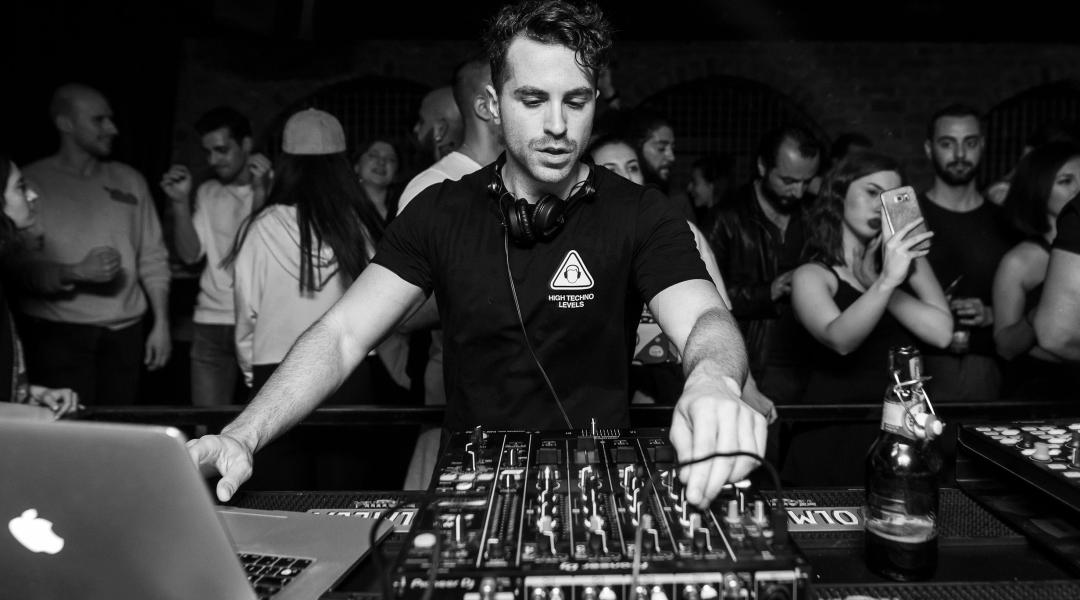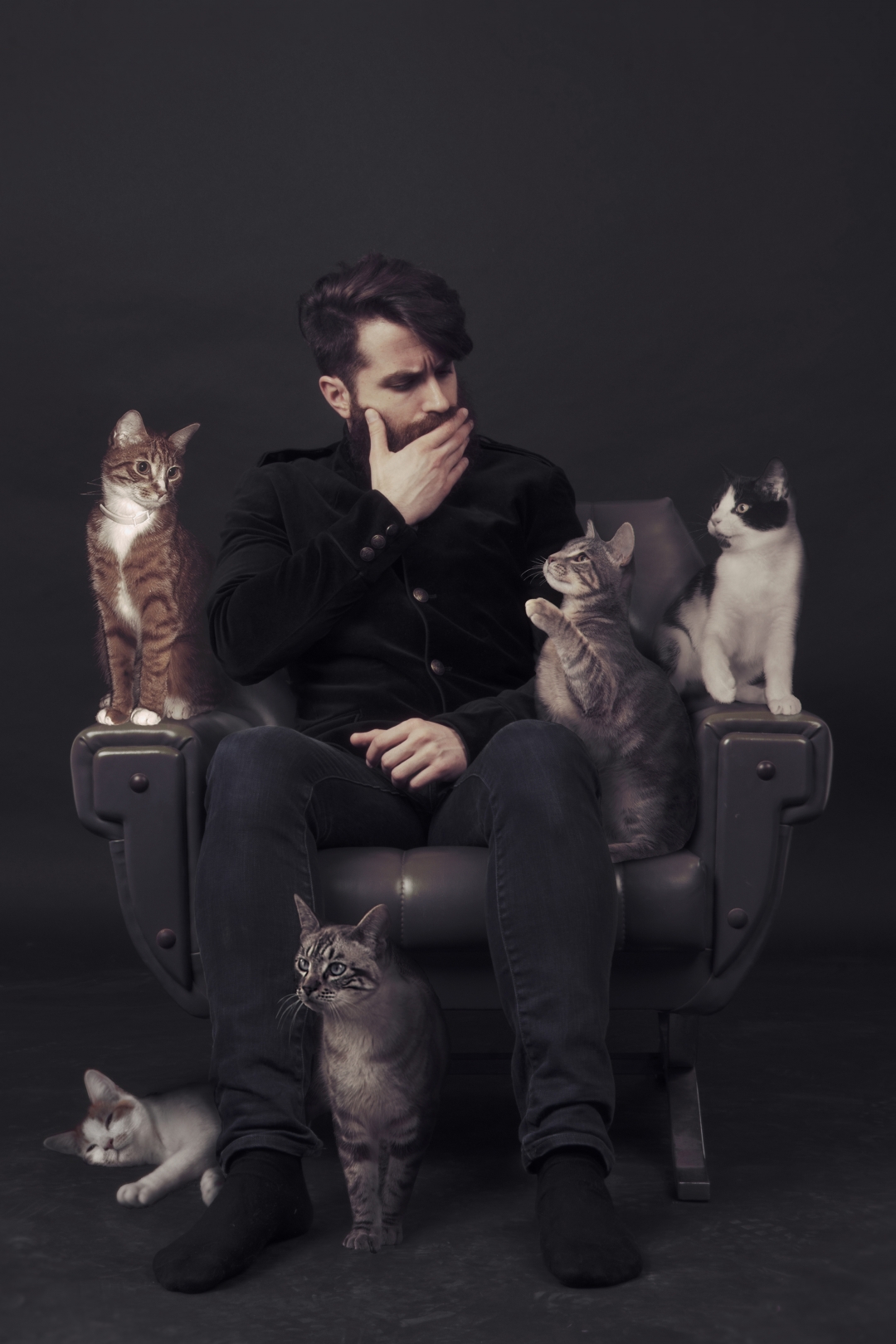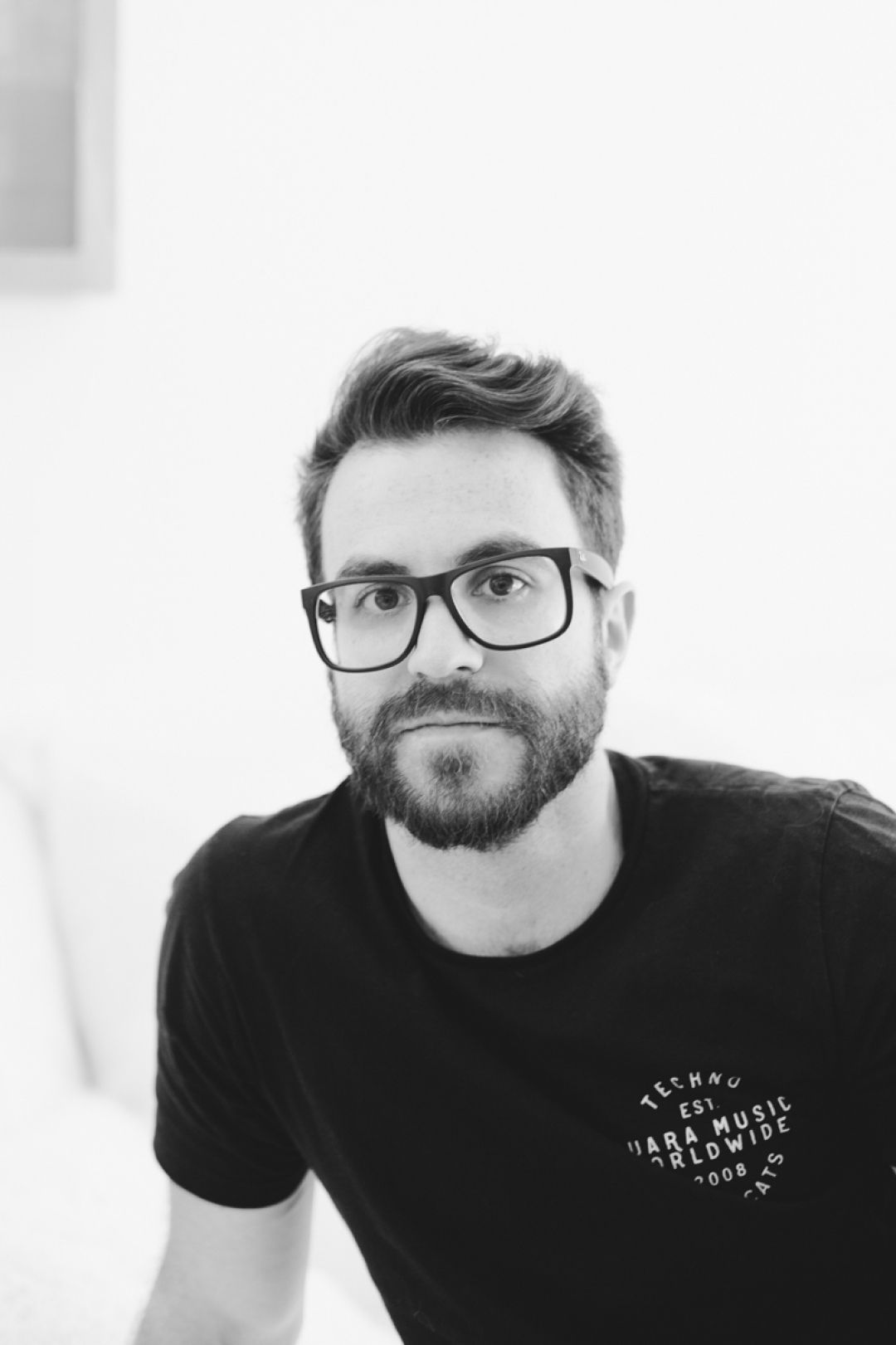Talent for comics and graphic novels is endless in Spain. Paco Roca, Ana Penyas, Paco Sordo, María Medem, Juanjo Guarnido, Teresa Valero… Do you want to get to know some of the best illustrators in the country?

Iván Ramos is the man behind the nom-de-guerre Coyu, most likely the best electronic music DJ and producer in Spain at the moment. Nobody sounds like him, which perhaps is why he decided to start a label to record and distribute his songs, help out others who are just beginning, and get the blessing from god Moby himself, as the man allowed him to release a record featuring remixes of his most iconic tunes.
Iván Ramos (Barcelona, 1985) took his stage name from a track he loved when he was 15 years old and which he had discovered on a compilation by the Amnesia club. The song mentioned a boy called Coyuco. Without thinking twice he made it his internet nickname, and after a while all his friends ended up calling him Coyu.
He was going to be a music journalist, because he didn’t see playing and composing as anything more than a hobby. But music ended up being a big part of his life. So much so that nowadays he’s hardly ever not on the road (60 countries in 15 years), playing sold-out sets and having his name uttered all over the globe. Blessed streaming! The key—to combine powerful, uncompromising rhythms with beautiful harmonies (the kind that round off and illuminate the soaring spirals of progressive techno, i.e. ‘the drop’).
We’re meeting Coyu in Madrid, before an anticipated live performance at Mondo Disko, the venue with the best electronic music programming in the city. To our surprise, he’s shaved off the beard he used to sport in recent years. But that’s not the only surprise. Attentive and polite, he apologises for having postponed the interview 30 minutes. The night before he played (not to say ‘rocked it’) in Vigo, and he’ll be doing the same in Barcelona the next. “I’m sorry, I needed a little nap.” No problem.
When did the DJ in you emerge?
I have always liked music. In the early 2000s, when internet started booming, I downloaded a software program called Virtual DJ and began to explore its possibilities, making some crazy mixes. At 18, that pass-time became something more serious, and my music started to get played in clubs and festivals.
Do you have to like the nightlife particularly to be a DJ?
I guess so, but I also enjoy day parties a lot. When you like music that much, you don’t care if it’s 7 in the morning.
Coyu serves as an example of how today’s music industry is evolving—the album concept has lost strength, in favour of standalone songs, accompanied by their respective remixes, which now tend to be released in periods of two or three months. Specifically, you have about 50 tunes out and now, 15 years into your career, you’re announcing your first album, You Don’t Know, which will come out in the fall. Have you taken too long to release your first LP?
I haven’t felt ready for it, until now. I’ve been working on this album since 2012, with songs that, let’s say, have little to do with the sound people associate me with. The truth is that I was scared to let those songs out and find that people didn’t get them. But now I know that an artist has to feel free to do whatever they want. I consider myself mature enough to present this material and accept that maybe not all my fans will like it. Or maybe they will. Now is when people will know who Coyu really is.
"Internet has made music more democratic. All you need is a computer and some software to create good music"
Why did you decide to start Suara, your record label?
Because I needed to have control over everything I do, not only my productions or my gigs, but everything—to have it all together in one place. My first label was called Atypical Farm, which I started in 2008. Then I created Suara as a subsidiary, but that started growing so much that it didn’t make sense to continue with the parent label. I started out online, looking for and discovering many artists. If I liked them, I got in touch with them. And some producers started sending me their music. So that’s the story. Suara’s been growing slowly but unstoppably. Two years ago we announced that 24 hours later we were going to do a Facebook Live event to listen to the demos people would like to send us; that day alone we received 2,400 emails with tunes.
At what point did you realise that Suara was no longer a dream but a reality?
We had our first big hit in 2013: Imprint of Pleasure, by Tube & Berger, which was the best-selling song on [premier dance music portal] Beatport that year. We became a lot bigger after that and suddenly we had a much larger audience. In 2014, we started our first weekly party in Ibiza, and that’s where we really cut our teeth. Ibiza is a fiercely competitive jungle inhabited by people with lots of money and power who make you feel you are nobody. As a DJ, in Ibiza you definitely become a man.
Nowadays it seems that everyone knows how to compose. What happened in the music world?
Before, there were only a few people who dedicated themselves to music. Now, there are producers everywhere you look, and that’s only in Spain. Internet has made music more democratic. All you need is a computer and some software to create good music. The downside is that competition has become fierce.
Is techno, electronic music, a matter of pure mathematics?
I’m an Arts guy and I never liked maths that much, so I don’t really know what to tell you. (Laughs) For me, techno is emotion, feelings; it’s jumping onto the dancefloor and being yourself.
The life of a DJ can be particularly tough, especially when you’re playing one session after the other in different cities. How many times have you felt alone?
Many. I’m in a relationship, and I’m happy with her, but even so, the DJ life is a lonely one. When you’re playing in front of 2 or 3,000 people you’re the king, but when the party’s over, you go to your hotel alone, or straight to the airport. It’s tough, but it’s part of my life; it’s my passion and to me, in spite of everything, it’s worth it.






